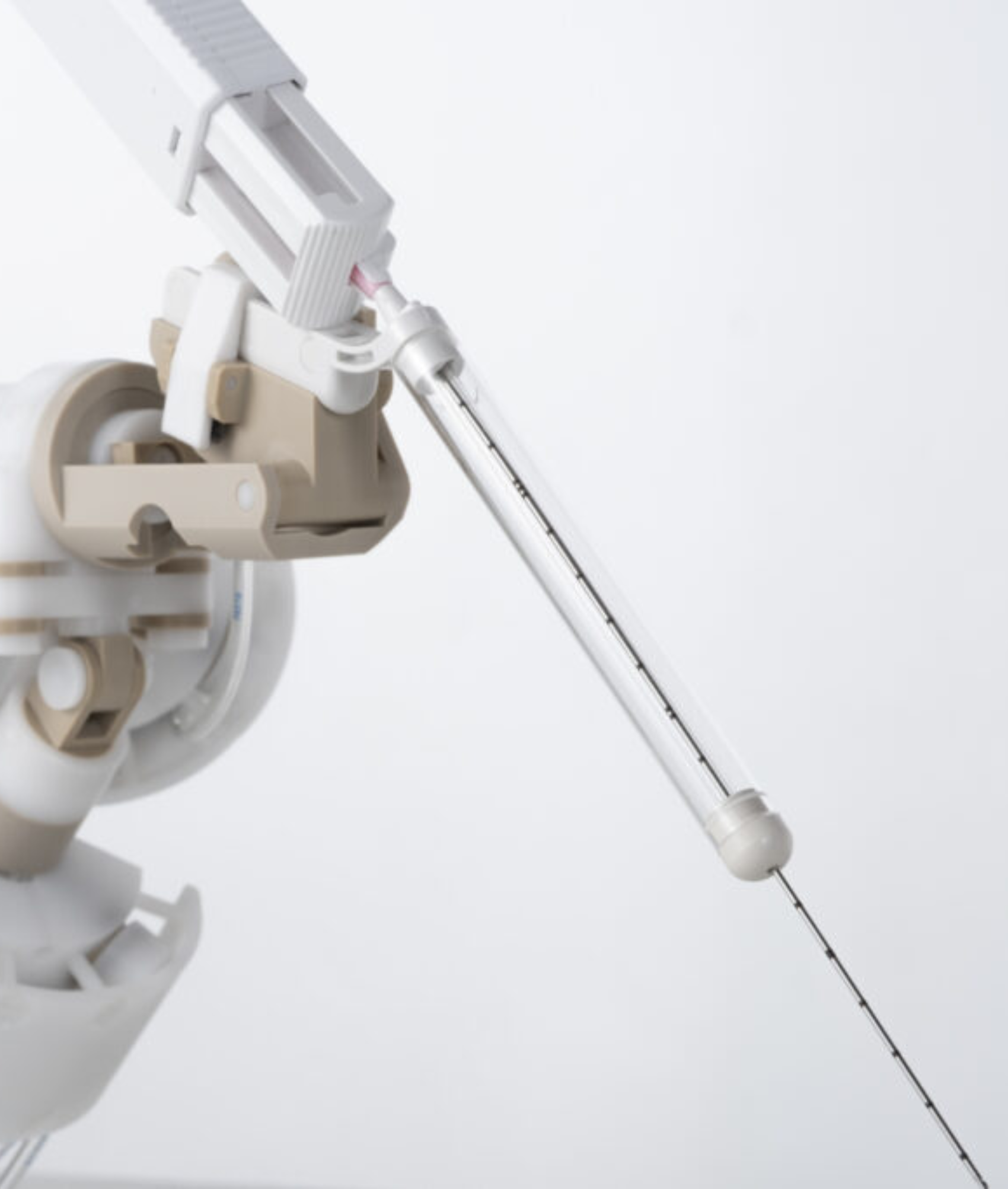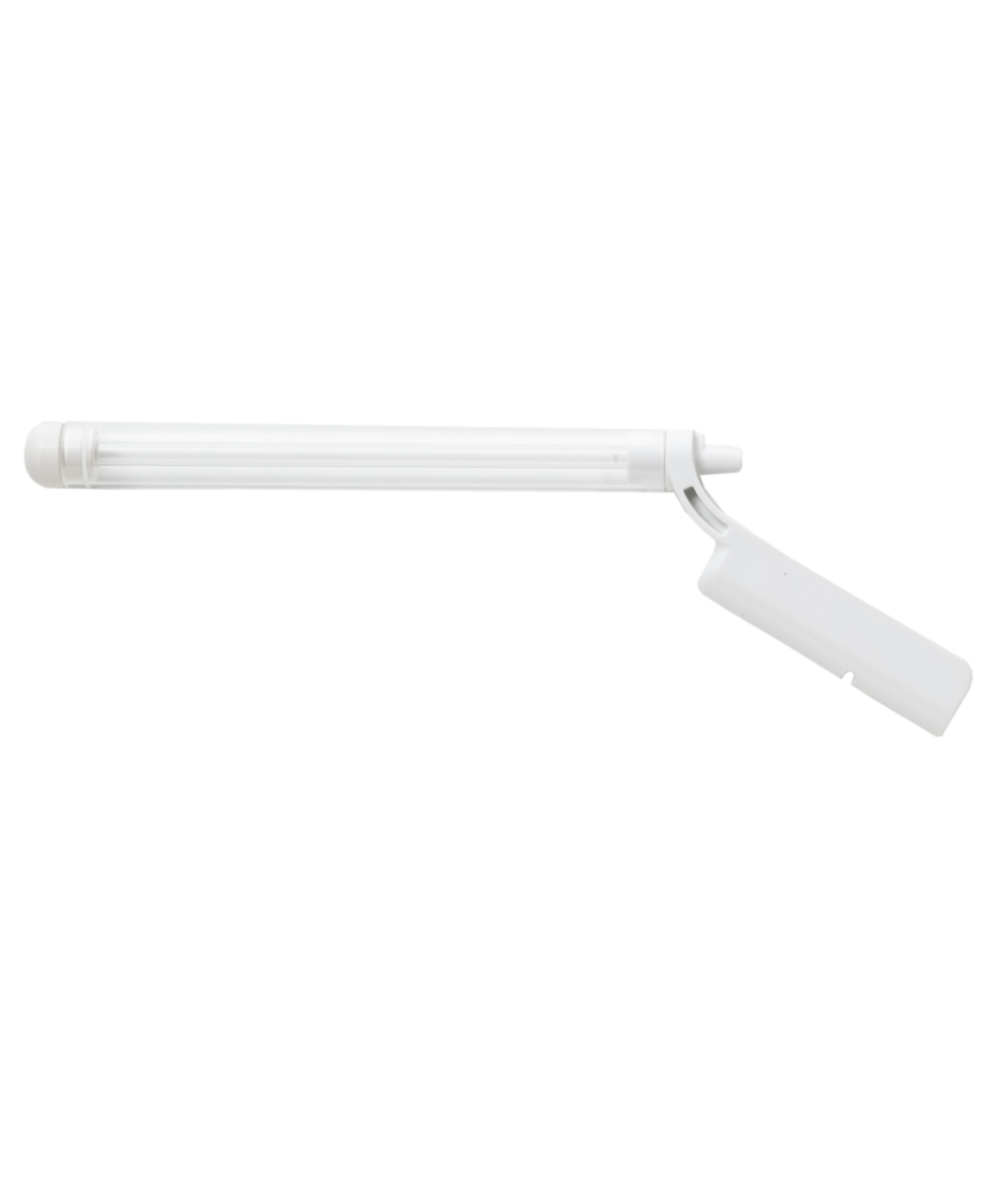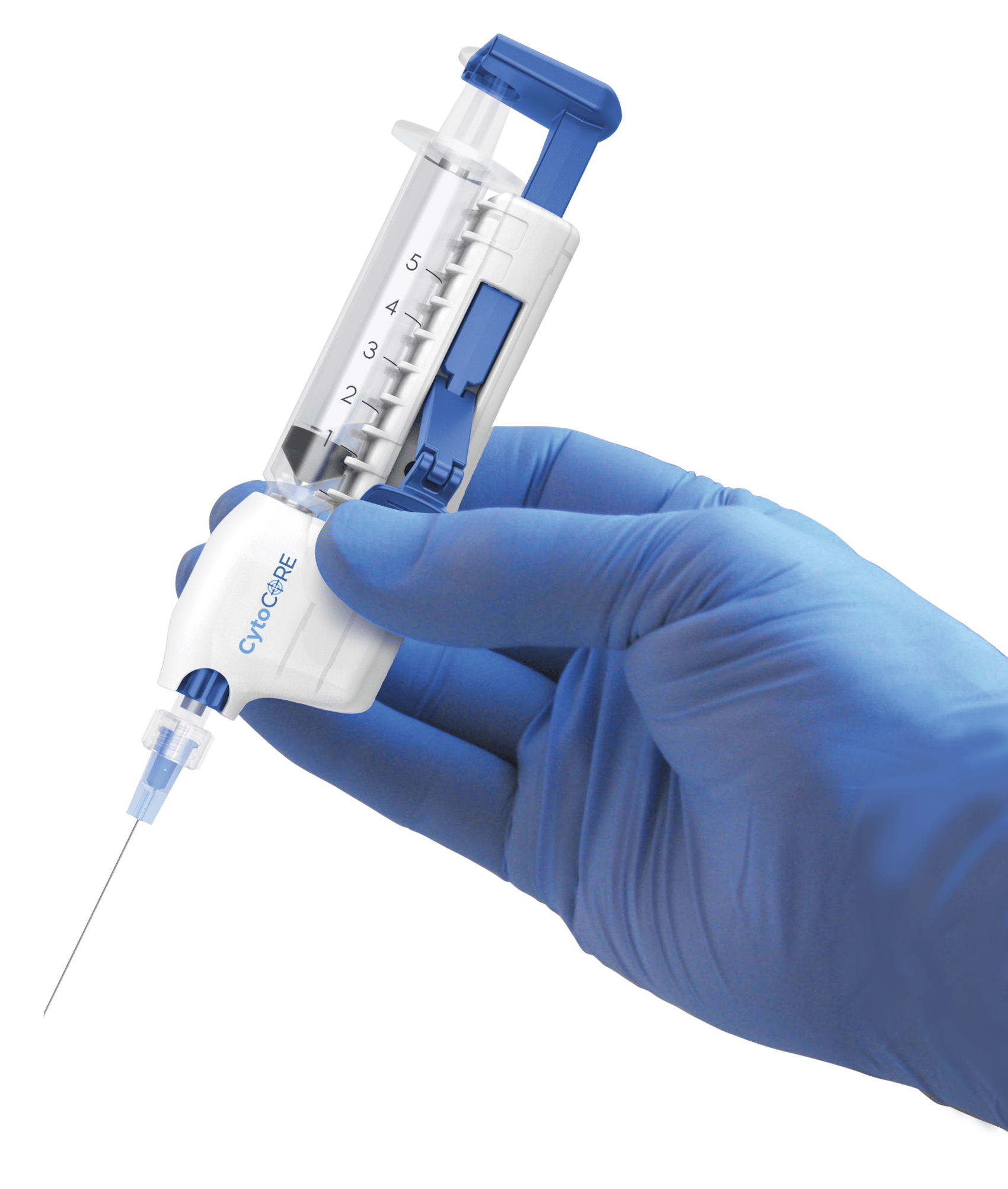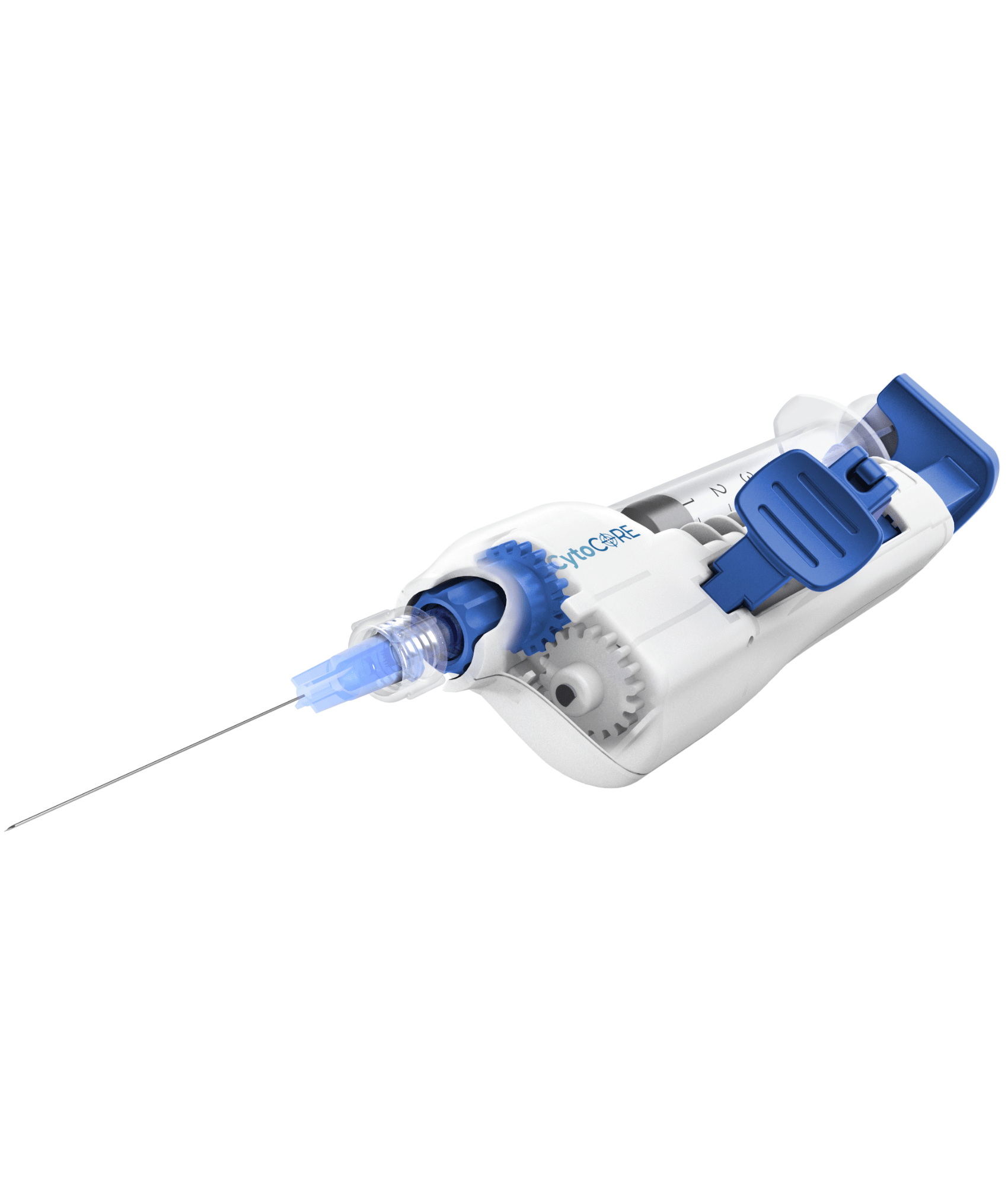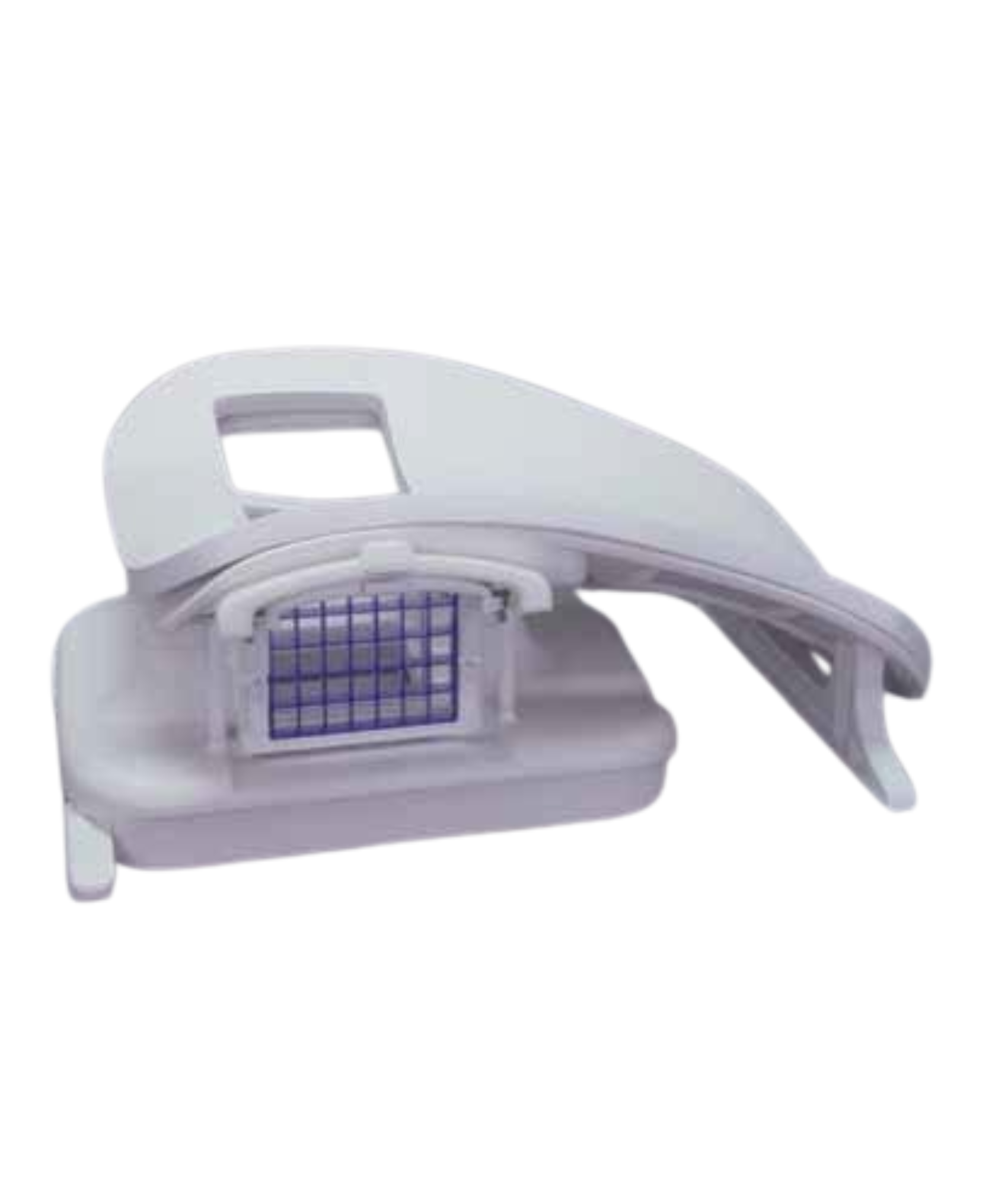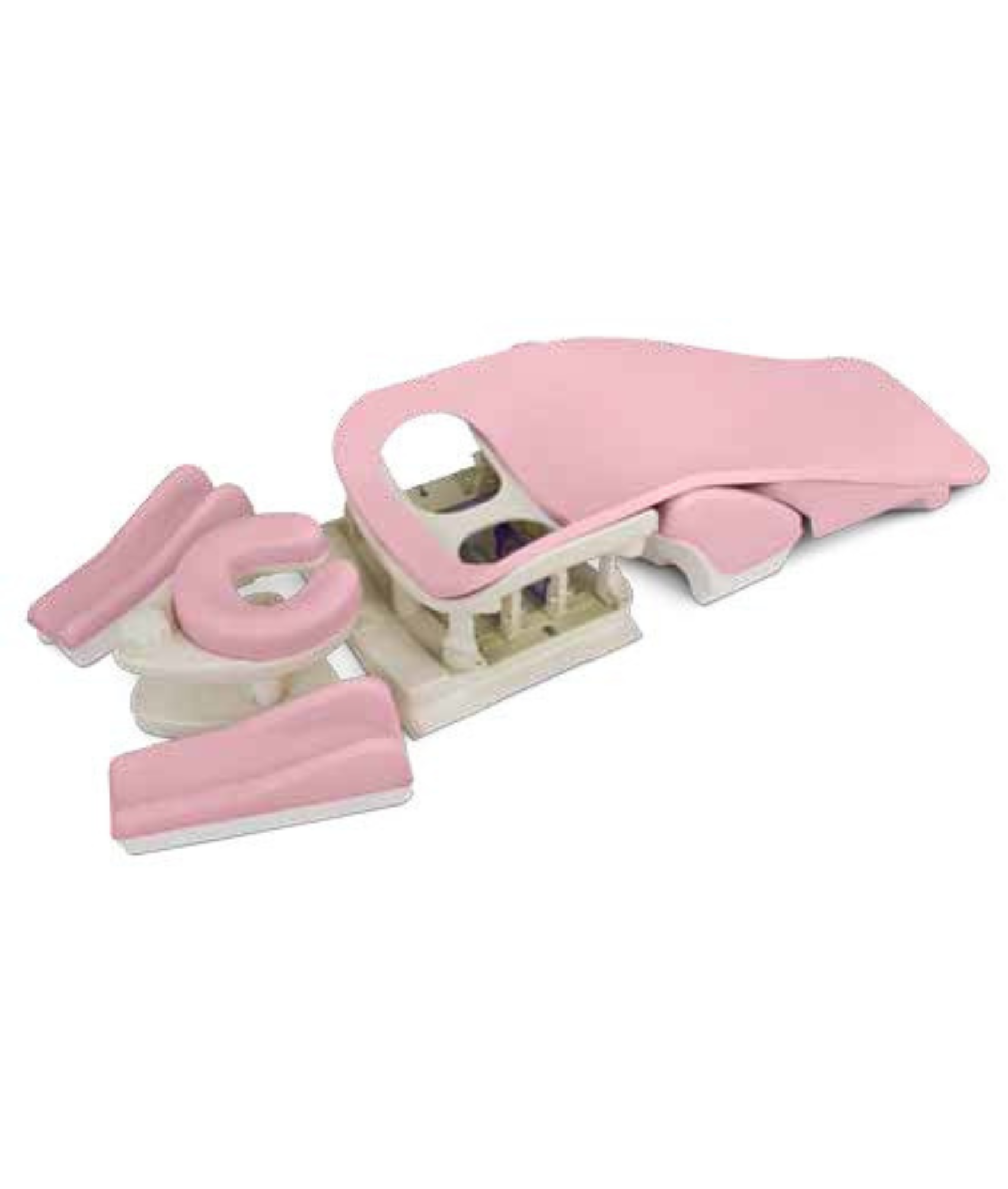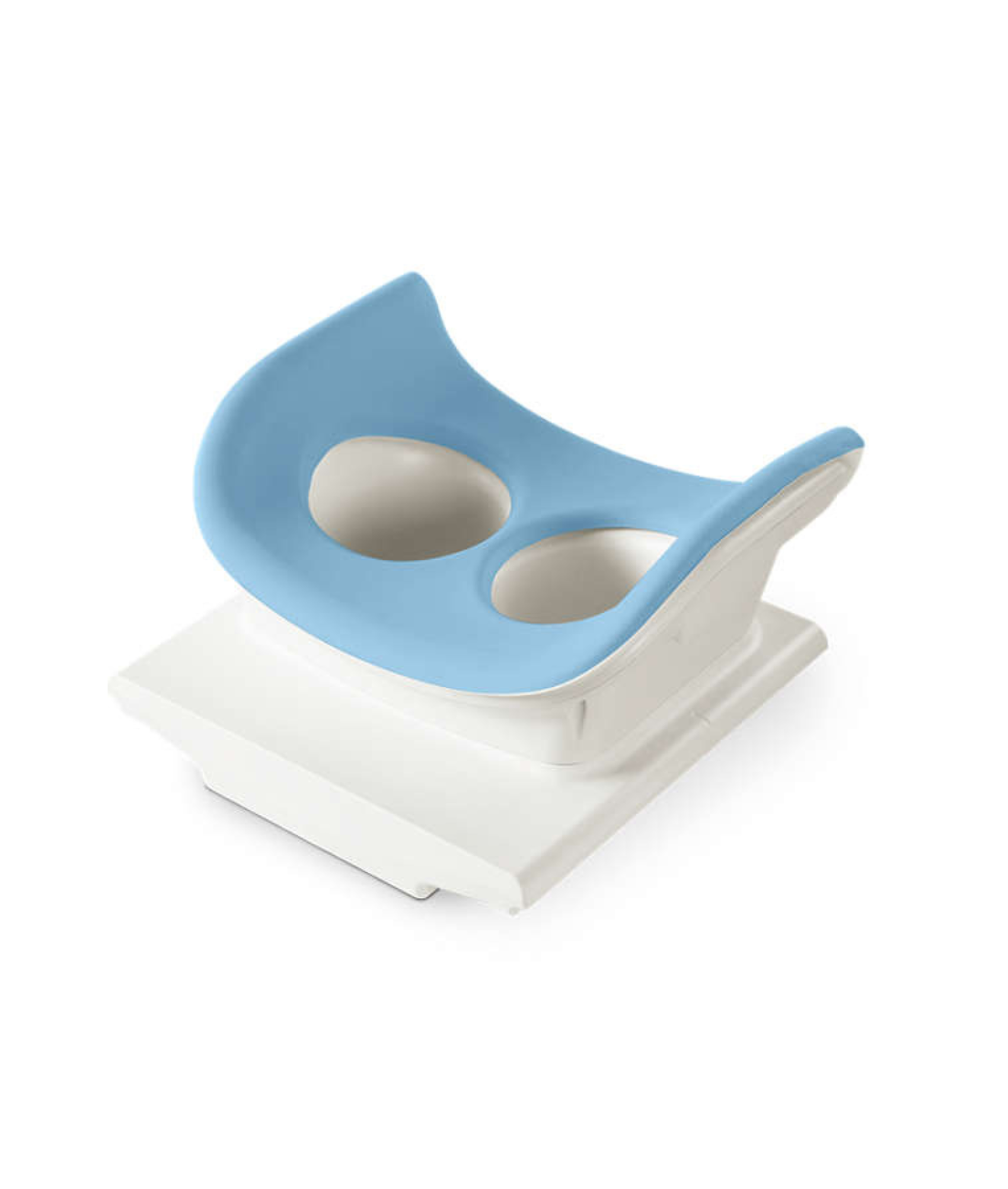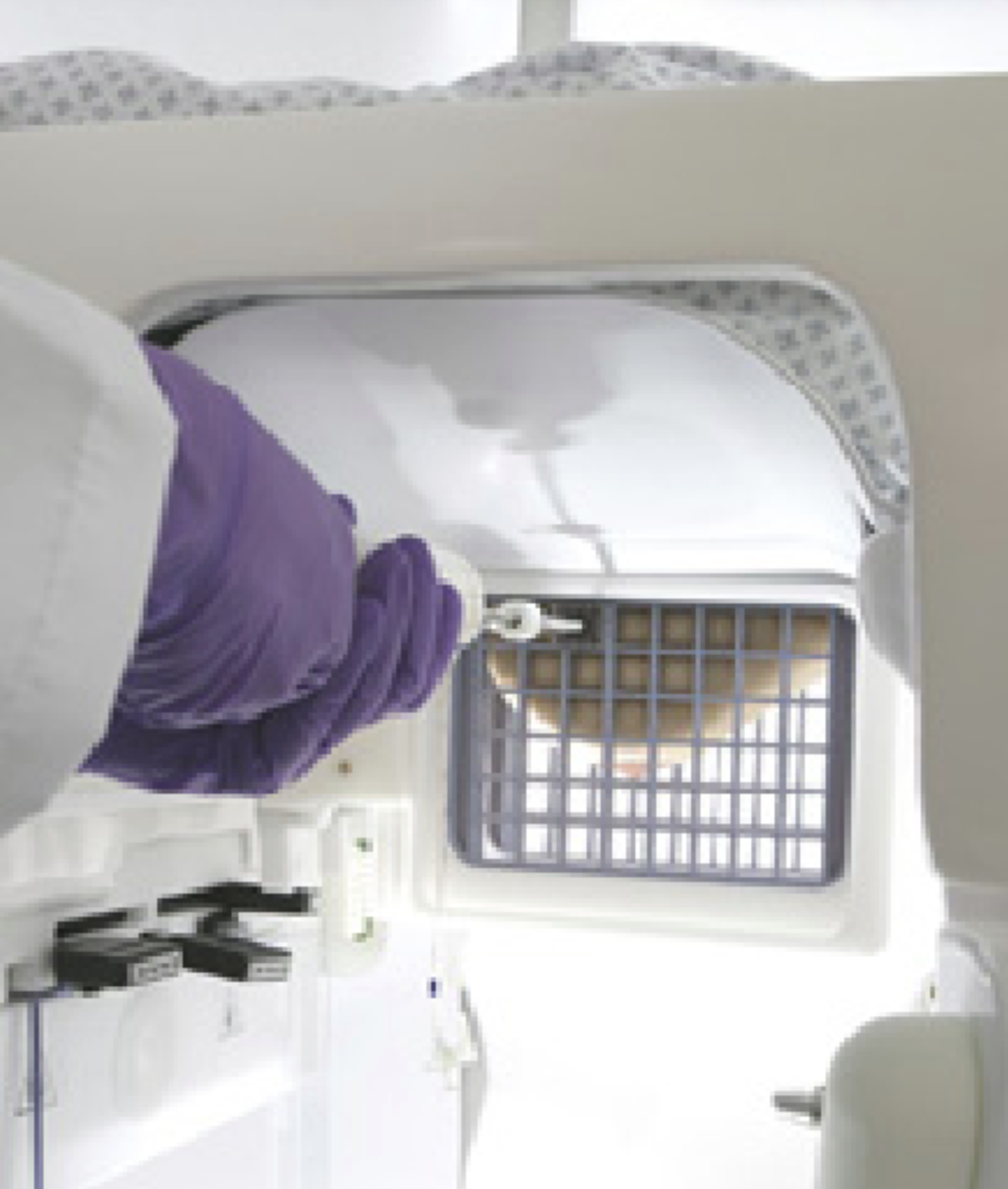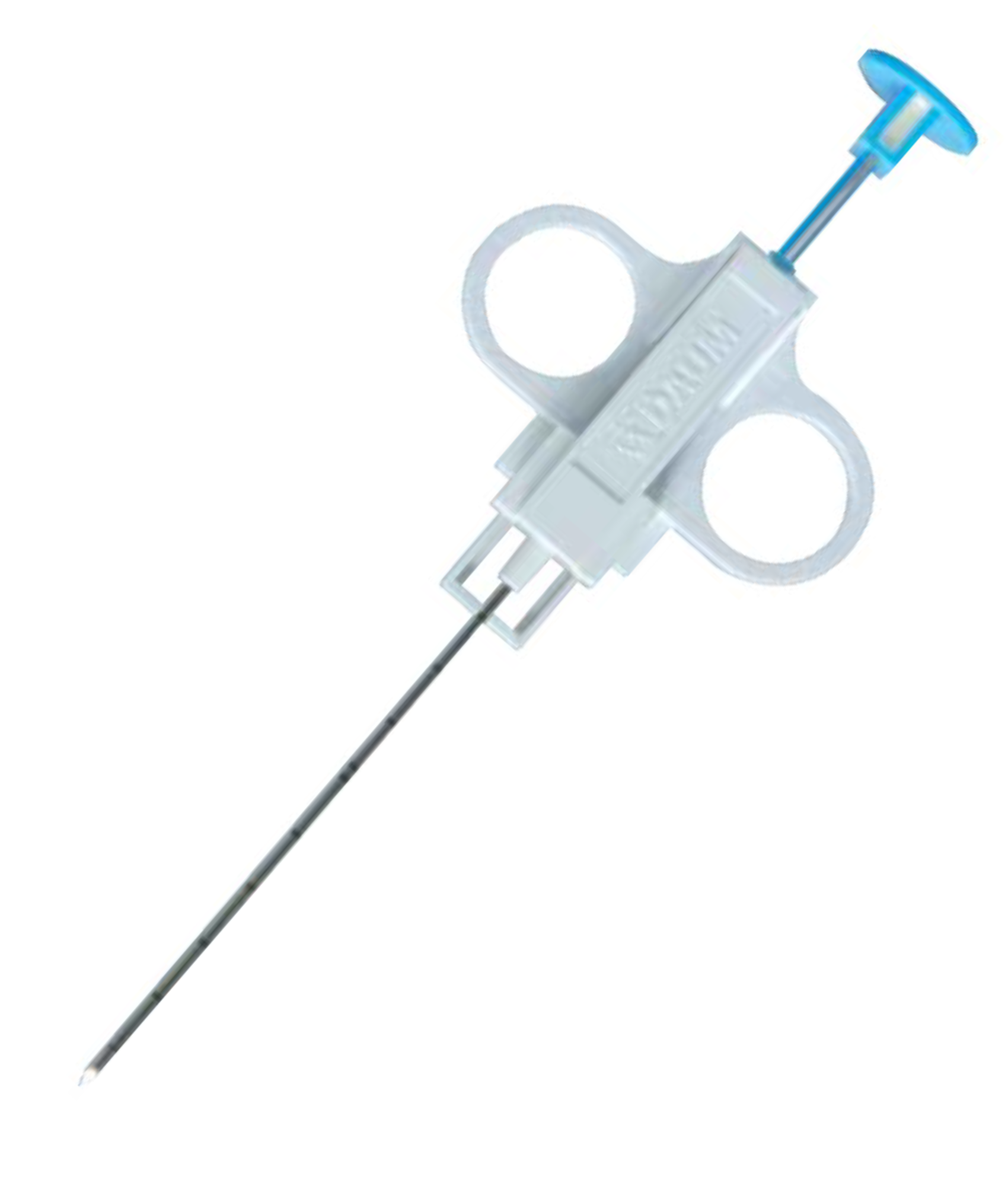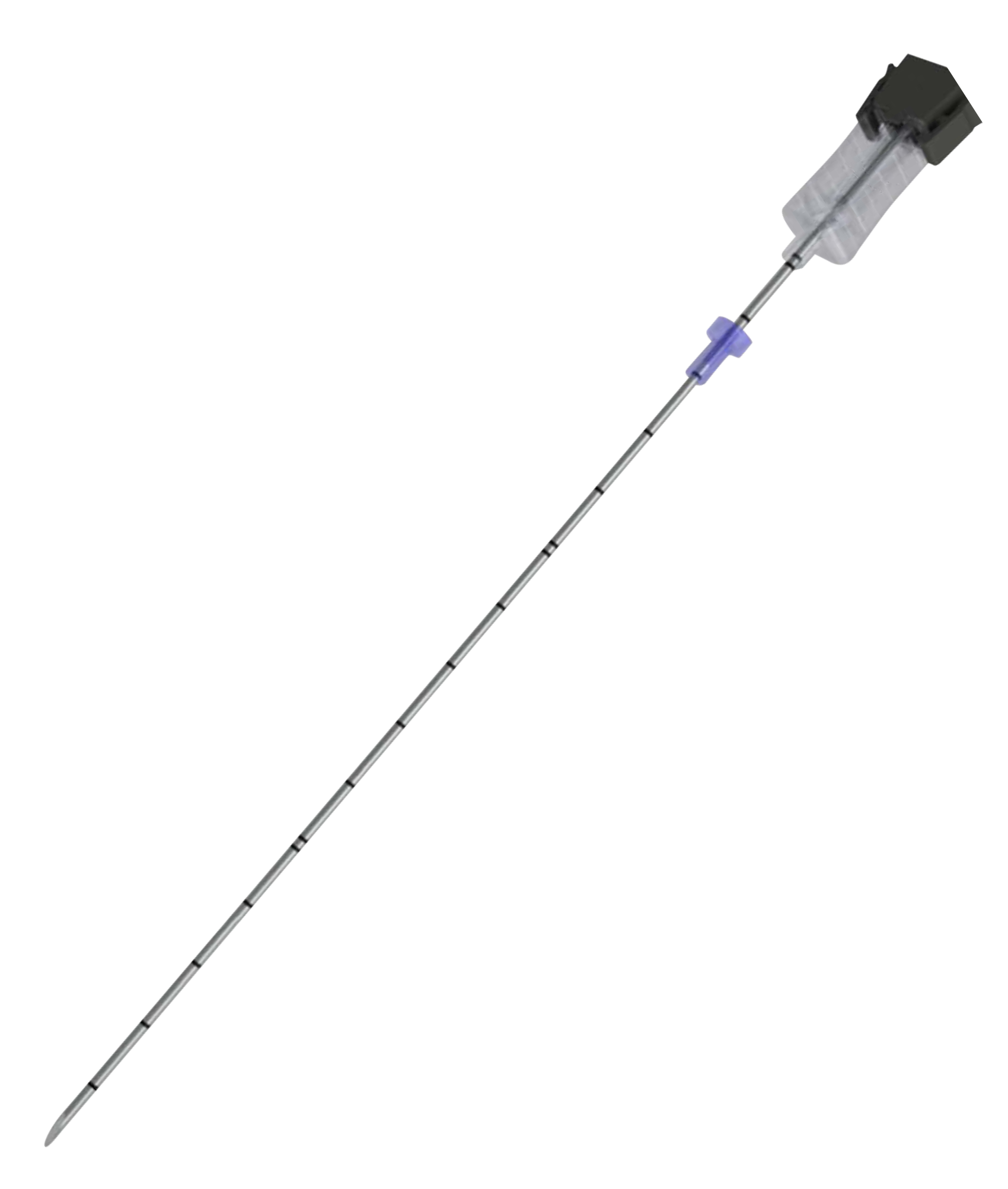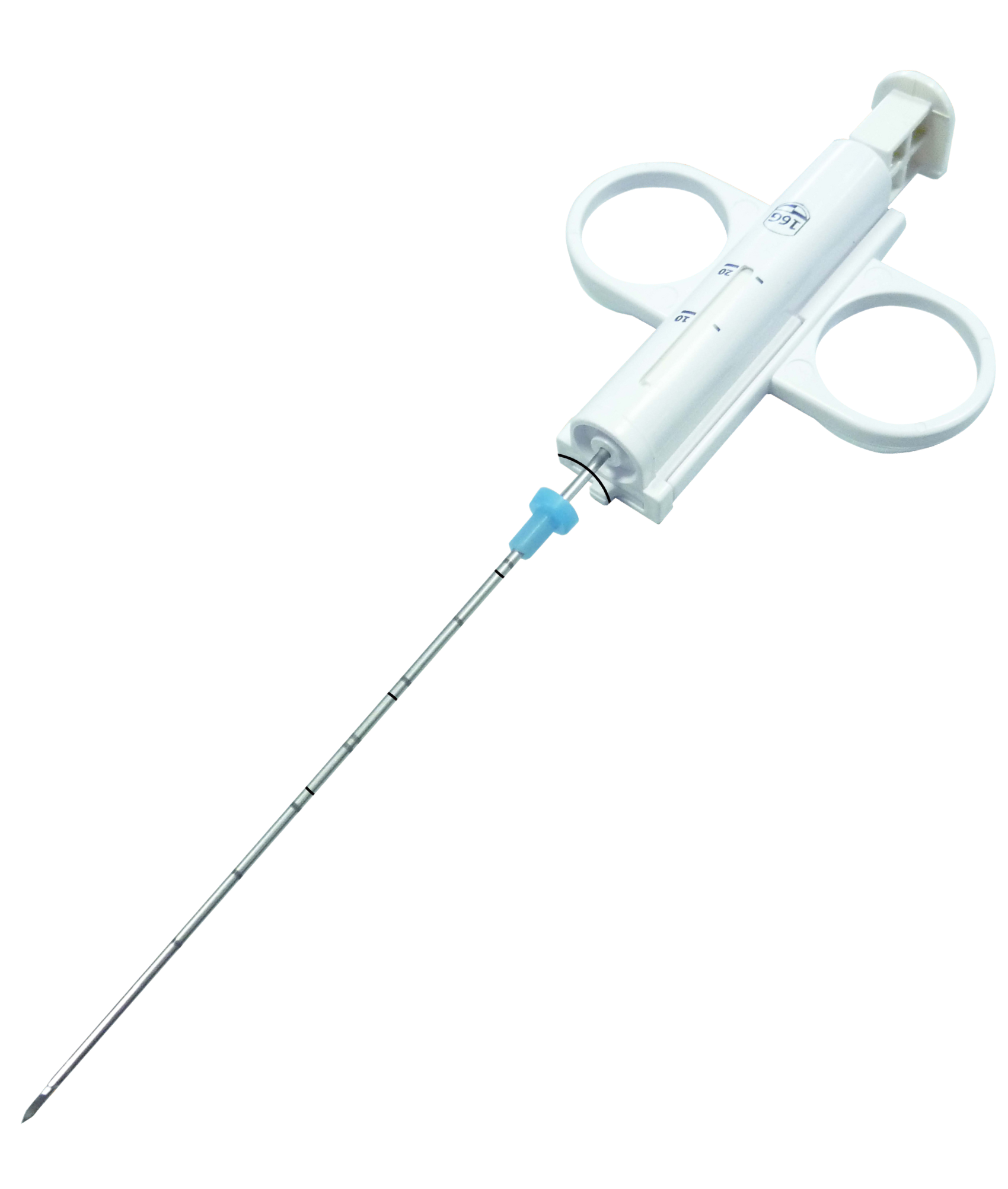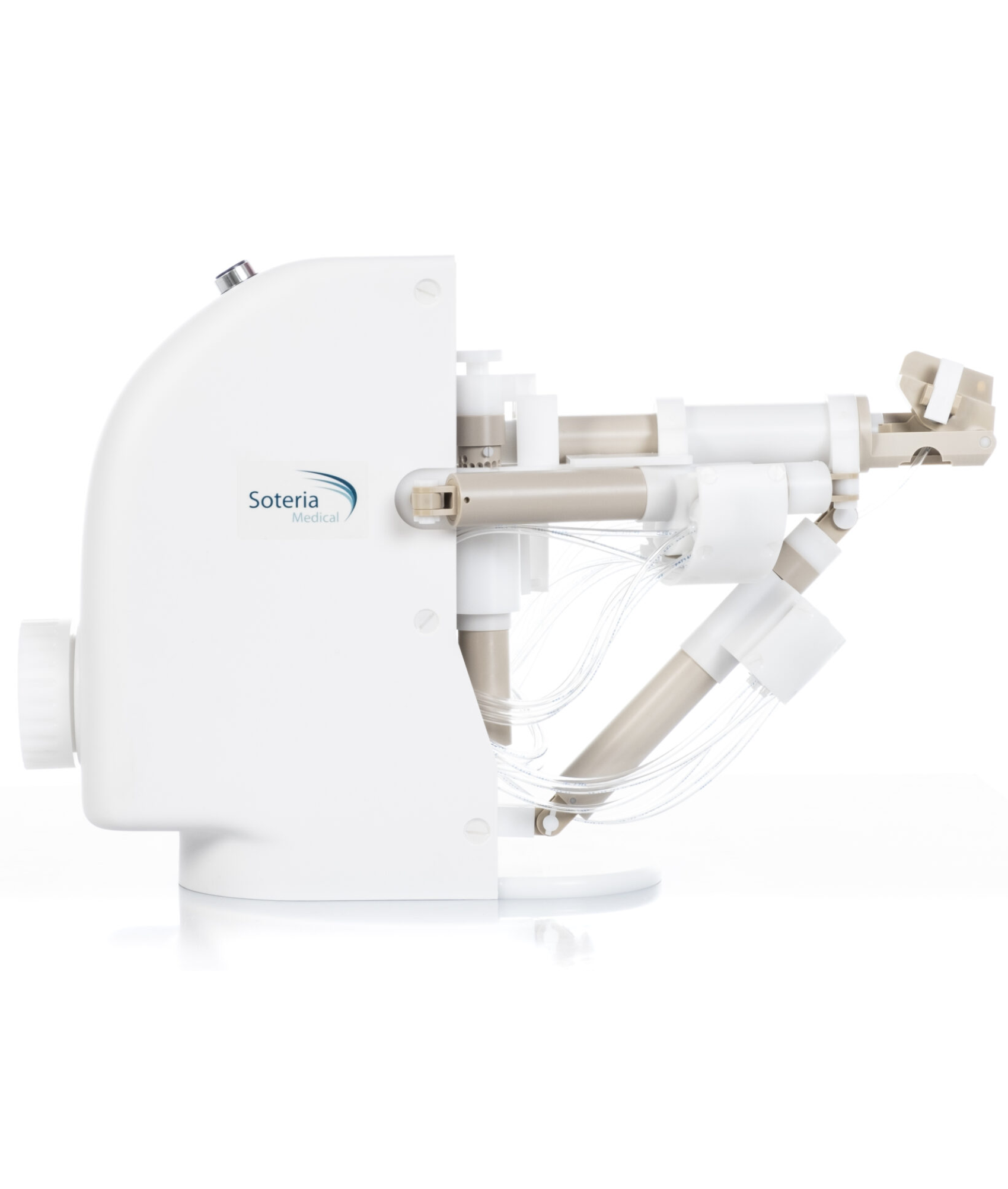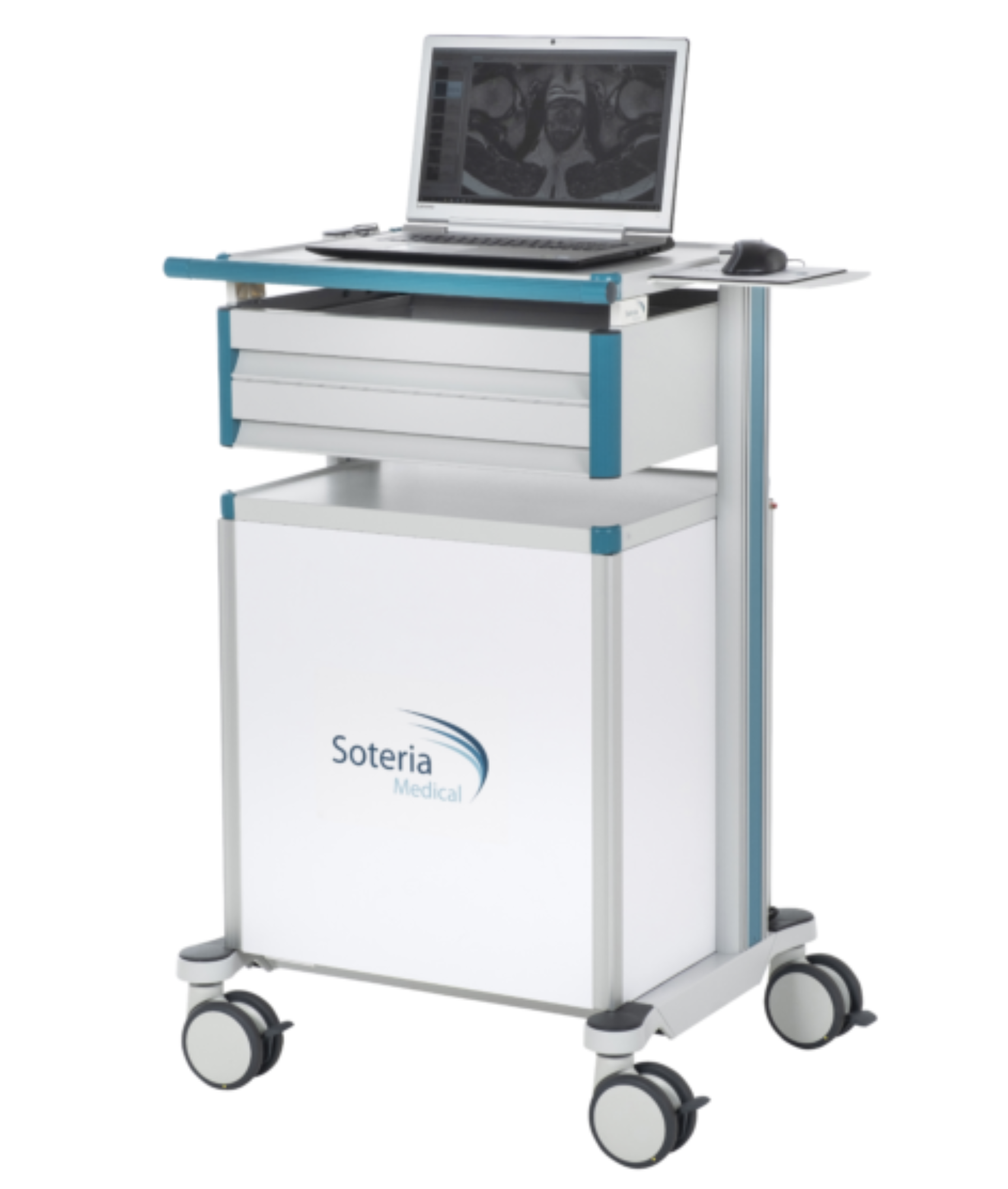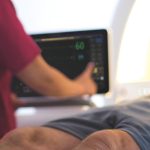Description
The liquid filling results in high visibility on MR images without any artefacts potentially caused by air bubbles!
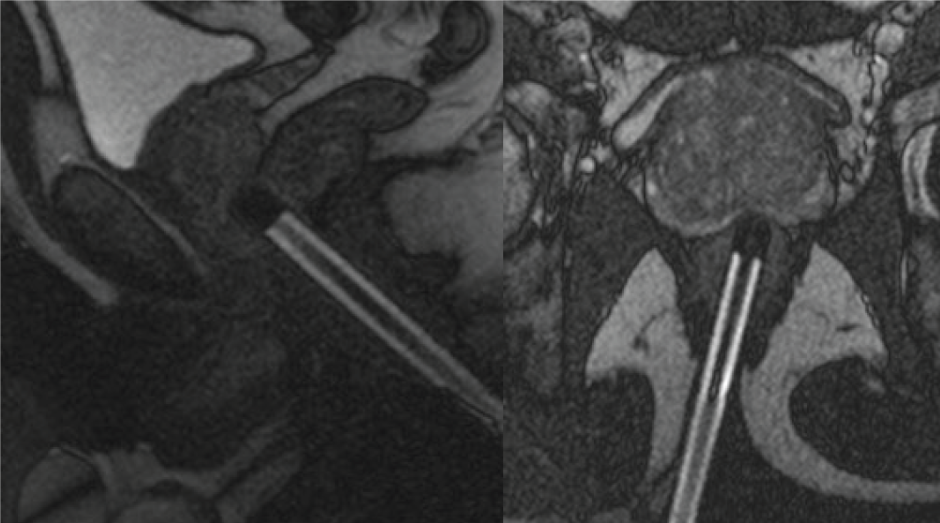
Example of the SNG in a fast sagittal and transversal scan on a 1.5T scanner.
Accessories
Available for 18G needles or medical devices.
The SNG accomodates MR-compatible and Stainless Steel 18G biopsy needles with a mimum length of 150mm.
Soteria offers the SNG in a KIT containing one Needle Guide and
one 18G, 200 mm stainless steel biopsy needle.
Prostate Diagnosis
MRI In-bore Biopsy
An MR-guided in-bore biopsy is an advanced medical procedure used to collect targeted tissue samples from the prostate gland for the examination of prostate cancer. This procedure employs the high sensitivity of MRI imaging, specialized equipment and software to plan and guide the biopsy route. This ensures that the sample is taken at the exact location of the suspicious area
on the MRI, resulting in highly accurate results.
The MR-guided in-bore biopsy represents a remarkable advancement in prostate cancer diagnosis by significantly reducing uncertainties and errors in the process. In-bore biopsy is typically used to collect 2-3 samples of tumor suspicious areas only and thereby lowering the number of overall cores and complications. The real-time MRI feedback of the needle guide location provides high confidence of the biopsy results and true aggressiveness of potential prostate cancer.
Traditional biopsy methods often had limitations in terms of precision and the ability to accurately locate and target suspicious lesions. With Soteria’s innovative approach, physicians are enabled to detect prostate cancer earlier and treat more precisely. It is a significant step forward in the battle against
this common form of cancer, improving patients’ prognosis and optimizing treatment options.
Benefits of In-bore Biopsy
- High precision: In-bore biopsy offers exceptional precision and accuracy in targeting suspicious areas within the prostate, reducing the likelihood of false-negative results.
- Increased confidence: In-bore biopsy minimizes the risk of sampling errors, ensuring that biopsy cores are taken from the exact tumor suspicious areas.
- Tailored treatment plans: The precise information obtained from in-bore biopsies helps in the development of personalized treatment plans based on the location and aggressiveness of the cancer.
In-bore biopsy is considered a valuable tool in the diagnosis and risk assessment of prostate cancer, especially when highly detailed imaging and precise targeting of suspicious areas are required by combining high sensitivity with high specificity. It offers significant advantages in terms of accuracy and helps to guide treatment decisions for patients.
Get the Optimal Diagnosis
MRI-guided prostate biopsies are essential for the diagnosis and treatment of prostate cancer. Utilizing the precision and detailed imaging capabilities of MRI, in-bore biopsies provide critical information for identifying, targeting and sampling suspicious areas within the prostate gland.
The Revolutionary New Way of Taking Prostate Biopsies
The advanced technique of the Remote Controlled Manipulator significantly enhances diagnostic accuracy. It reduces the need for unnecessary biopsies, minimizes patient discomfort and improves personalized treatment decisions. Ultimately, this approach leads to improved patient outcomes and more effective management of prostate cancer.
| Product Code | Length | Diameter | Guiding Needles |
|---|---|---|---|
| ITP-BIM1810 | 100 mm | 18G / 1,25 mm | ITP-KIM1604T |
| ITP-BIM1815 | 150 mm | 18G / 1,25 mm | ITP-KIM1609T |
| ITP-BIM1820 | 200 mm | 18G / 1,25 mm | ITP-KIM1614T |
| ITP-BIM1610 | 100 mm | 16G / 1,6 mm | ITP-KIM1504T |
| ITP-BIM1615 | 150 mm | 16G / 1,6 mm | ITP-KIM1509T |
| ITP-BIM1620 | 200 mm | 16G / 1,6 mm | ITP-KIM1514T |
| ITP-BIM1410 | 100 mm | 14G / 2,1 mm | ITP-KIM1304T |
| ITP-BIM1415 | 150 mm | 14G / 2,1 mm | ITP-KIM1309T |
| ITP-BIM1420 | 200 mm | 14G / 2,1 mm | ITP-KIM1314T |
The single-use needles are marked every 10 mm with increased markings every 50 mm.
The needles are delivered in boxes of 10. Each sterilized and packed separately.
